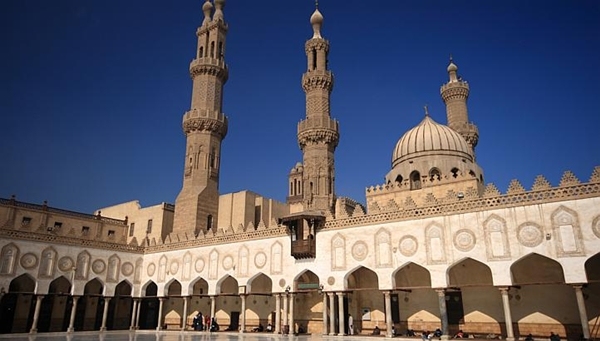A physical war can either create or obliterate signs, but fails to wipe out roots. The war on signs and symbols should change into an intellectual war against roots. Abdollah Ghanji, a political analyst, in an editorial published in Javan daily, has put forth a solution to restore peace to the Muslim world. He believes that Sunni pundits should launch a public campaign against attempts to sell the youth a misleading version of Islam advocated by Wahhabis in their madrassas where butchers are trained with Saudi financial support.
The following is a partial translation of the editorial:
A look at bloody conflicts across the world indicates that all wars, disputes, acts of terror and carnages take place in the world of Islam. In the world today, there is arguably no other bloody war than those raging in Islamic countries.
A look at developments in Iraq, Syria, Nigeria and Afghanistan, among other places, shows that the battle is political in nature. However, there have been attempts to falsely associate these conflicts with ideology. Without setting a goal for their future some fervent young people, whose age has made it difficult for them to follow logic, set foot in a field which is aimed at either killing or being killed.
An analysis of the reason behind the outbreak of criminal acts which are full of hatred in the world of Islam should be carried out with a focus on ideological concepts.
A while ago, Seyyed Hassan Nasrallah, the secretary general of Lebanon’s Hezbollah, offered a solution which seems to have fallen on deaf ears. Four factors, namely faith, motivation, encouragement and power have contributed to the emergence of things as they are now. The political nature of such conflicts is exposed when we take account of the fact that people in these countries [Muslim countries] used to live together and respect each other while holding onto their religious beliefs.
Out of the four factors at play, encouragement comes from the West, because it can derail Muslims’ march toward the al-Aqsa Mosque. Therefore, in its battle against Muslims, the West has targeted the heart of Islam and has been successful to a large extent. But the other three factors are endogenic in nature.
The belief in uprooting different Islamic sects has its roots in Wahhabism, which motivates people with an illusion of seeking martyrdom.
The pursuit of martyrdom is based on fatwas issued by Muftis and their associates who denounce other Muslims as apostates and thus grant followers permission to capture their wives and property as spoils of war. They also hail death in pursuit of that goal as martyrdom which guarantees the martyr the company of the Prophet Muhammad in the afterlife.
Power, the fourth factor, which is spent on the purchase of military and transport equipment as well as hiring terrorists, is provided by the Saudi government and 25 Saudi investors. Revenues from the sales of 10 million oil barrels a day along with a sizeable fortune that Hajj brings are ten times more than the budget required for running a country with a population of 25 million.
The money which used to be spent on construction of stately mosques across the world is now allocated to building seminary schools and expanding the ideology of otherness within the world of Islam.
The benefit that the West reaps presently is more than that of democratization in the world of Islam and, in particular on the Arabian Peninsula. What is taking place will bring as much harm as benefit to the West.
Nowhere in the world like the Middle East, have Western double standards been exposed so clearly, which is enough to know the West.
History shows that the West never cares about peace in the world of Islam. The West knows well that pressure through democratic leverage acts better than democracy itself in guaranteeing an abundant supply of oil to the market.
The Western world puts its interests ahead of democracy, because if instead of a single family, the Saudi nation gains control over its resources, the sales of 10 million barrels of oil on a daily basis to finance terrorism across the world will be impossible. That’s why a solution should be worked out from the inside of the world of Islam.
To that end, signing up for a course at madrassas where butchers are trained should be decried as an anti-value and the monopoly held by the sons of Muhammad ibn Abd al-Wahhab, the founder of Wahhabism, over petrodollars and revenues from Hajj should be shattered.
As long as such financial sources, madrassas and ideology persist, peace will elude the world of Islam.
